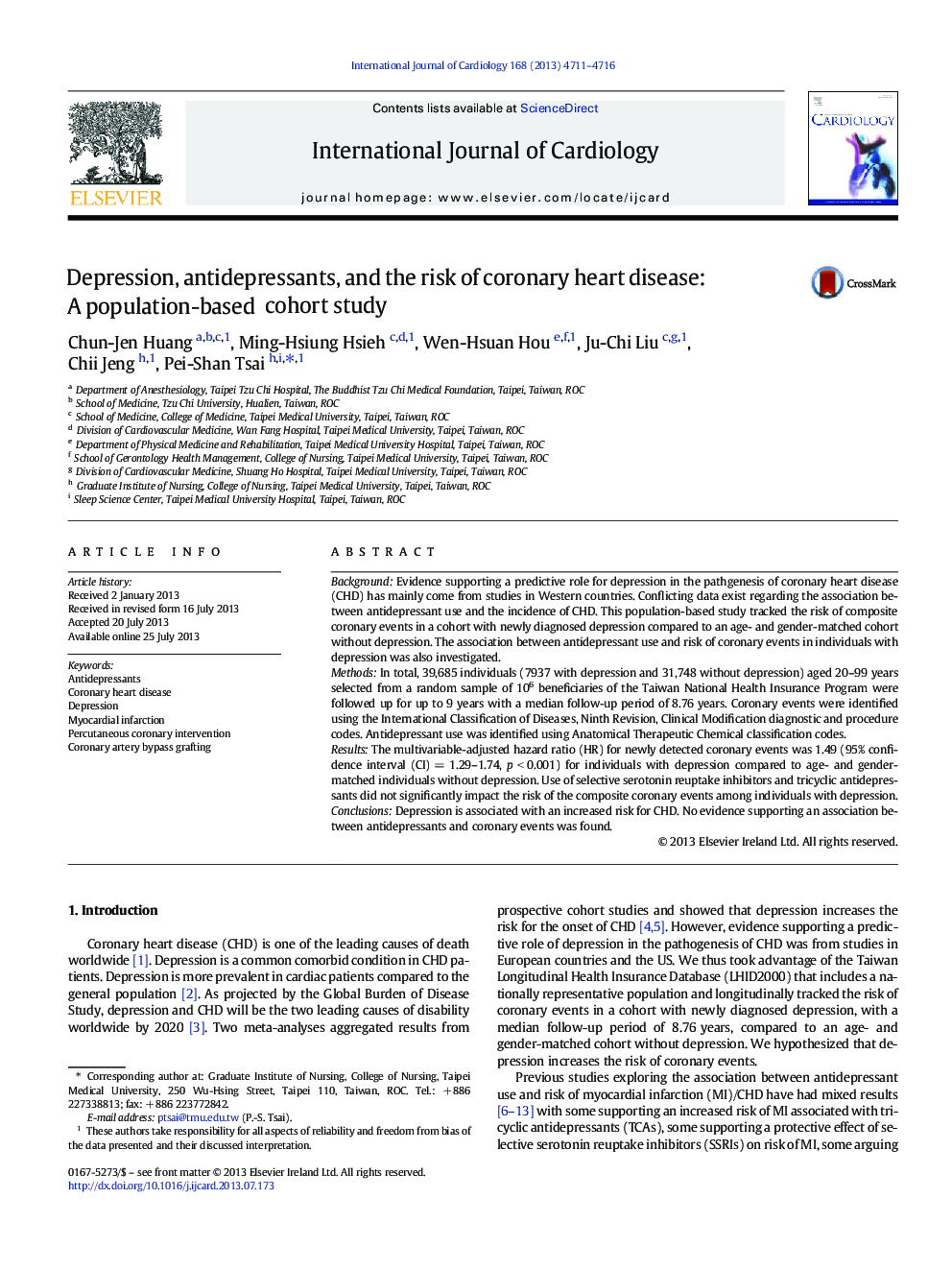| Article ID | Journal | Published Year | Pages | File Type |
|---|---|---|---|---|
| 5973352 | International Journal of Cardiology | 2013 | 6 Pages |
BackgroundEvidence supporting a predictive role for depression in the pathgenesis of coronary heart disease (CHD) has mainly come from studies in Western countries. Conflicting data exist regarding the association between antidepressant use and the incidence of CHD. This population-based study tracked the risk of composite coronary events in a cohort with newly diagnosed depression compared to an age- and gender-matched cohort without depression. The association between antidepressant use and risk of coronary events in individuals with depression was also investigated.MethodsIn total, 39,685 individuals (7937 with depression and 31,748 without depression) aged 20-99 years selected from a random sample of 106 beneficiaries of the Taiwan National Health Insurance Program were followed up for up to 9 years with a median follow-up period of 8.76 years. Coronary events were identified using the International Classification of Diseases, Ninth Revision, Clinical Modification diagnostic and procedure codes. Antidepressant use was identified using Anatomical Therapeutic Chemical classification codes.ResultsThe multivariable-adjusted hazard ratio (HR) for newly detected coronary events was 1.49 (95% confidence interval (CI) = 1.29-1.74, p < 0.001) for individuals with depression compared to age- and gender-matched individuals without depression. Use of selective serotonin reuptake inhibitors and tricyclic antidepressants did not significantly impact the risk of the composite coronary events among individuals with depression.ConclusionsDepression is associated with an increased risk for CHD. No evidence supporting an association between antidepressants and coronary events was found.
